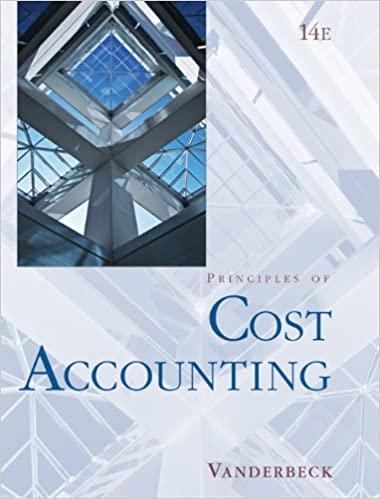Question
18) If a seller makes an intra-entity sale of a depreciable asset at a price above book value, the sellers beginning Retained Earnings is reduced
18) If a seller makes an intra-entity sale of a depreciable asset at a price above book value, the sellers beginning Retained Earnings is reduced when preparing each subsequent consolidation. Why does the amount of the adjustment change from year to year?
19) What is a variable interest entity (VIE)?
20) What are variable interests in an entity, and how might they provide financial control over an entity?
21) When is a firm required to consolidate the financial statements of a VIE with its own financial statements?
22) A parent company acquires from a third party bonds that had been issued originally by one of its subsidiaries. What accounting problems are created by this purchase?
23) In Question 22, why is the consolidation process simpler if the bonds had been acquired directly from the subsidiary than from a third party?
24) When a company acquires an affiliated companys debt instruments from a third party, how is the gain or loss on extinguishment of the debt calculated? When should this balance be recognized?
25) Several years ago, Bennett, Inc., bought a portion of the outstanding bonds of Smith Corporation, a subsidiary organization. The acquisition was made from an outside party. In the current year, how should these intra-entity bonds be accounted for within the consolidation process?
Step by Step Solution
There are 3 Steps involved in it
Step: 1

Get Instant Access to Expert-Tailored Solutions
See step-by-step solutions with expert insights and AI powered tools for academic success
Step: 2

Step: 3

Ace Your Homework with AI
Get the answers you need in no time with our AI-driven, step-by-step assistance
Get Started


